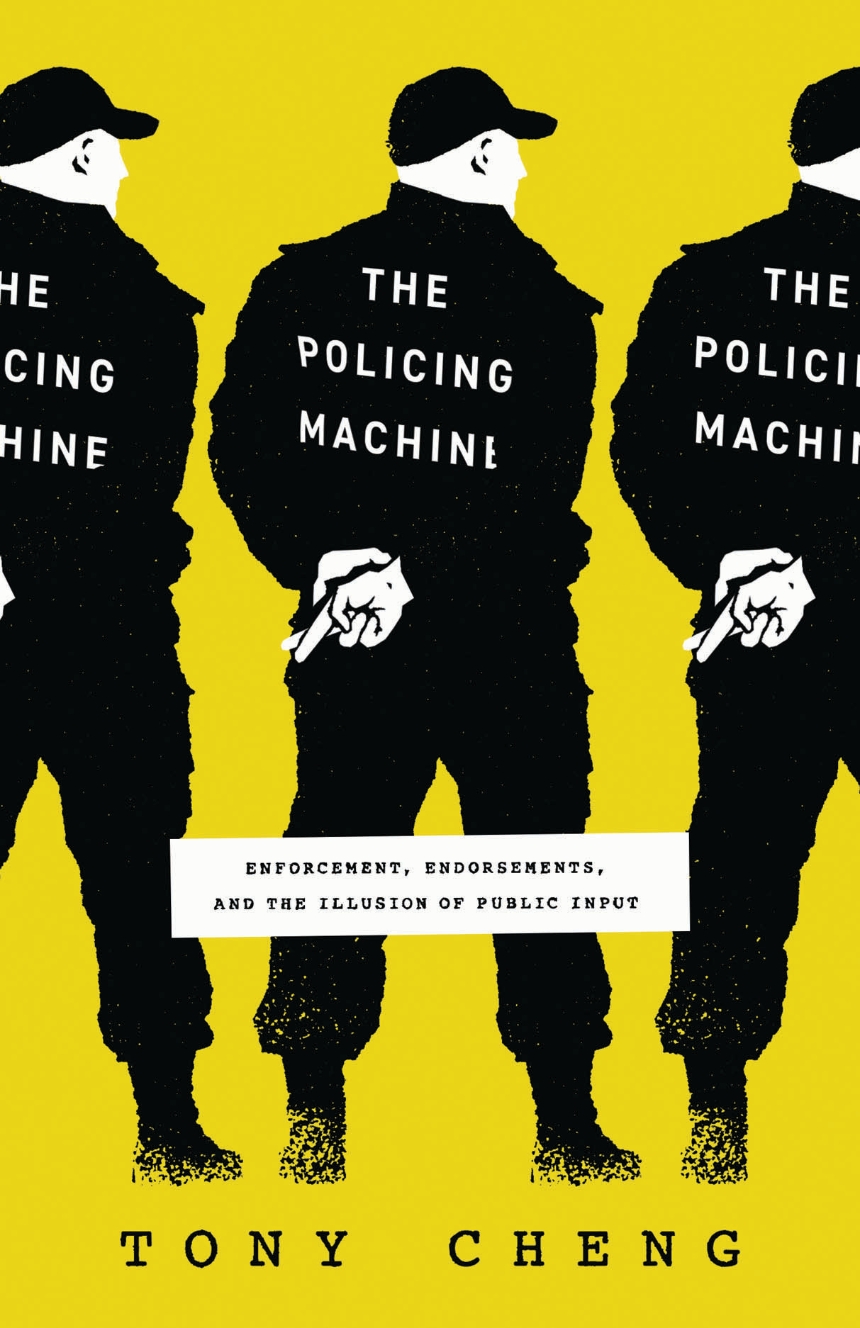The Policing Machine
Enforcement, Endorsements, and the Illusion of Public Input
9780226830650
9780226830636
9780226830643
9780226837208
The Policing Machine
Enforcement, Endorsements, and the Illusion of Public Input
A revelatory look at how the NYPD has resisted change through strategic and selective community engagement.
The past few years have seen Americans express passionate demands for police transformation. But even as discussion of no-knock warrants, chokeholds, and body cameras has exploded, any changes to police procedures have only led to the same outcomes. Despite calls for increased accountability, police departments have successfully stonewalled change.
In The Policing Machine, Tony Cheng reveals the stages of that resistance, offering a close look at the deep engagement strategies that NYPD precincts have developed with only subsets of the community in order to counter any truly meaningful, democratic oversight. Cheng spent nearly two years in an unprecedented effort to understand the who and how of police-community relationship building in New York City, documenting the many ways the police strategically distributed power and privilege within the community to increase their own public legitimacy without sacrificing their organizational independence. By setting up community councils that are conveniently run by police allies, handing out favors to local churches that will promote the police to their parishioners, and offering additional support to institutions friendly to the police, the NYPD, like police departments all over the country, cultivates political capital through a strategic politics that involves distributing public resources, offering regulatory leniency, and deploying coercive force. The fundamental challenge with police-community relationships, Cheng shows, is not to build them. It is that they already exist and are motivated by a machinery designed to stymie reform.
The past few years have seen Americans express passionate demands for police transformation. But even as discussion of no-knock warrants, chokeholds, and body cameras has exploded, any changes to police procedures have only led to the same outcomes. Despite calls for increased accountability, police departments have successfully stonewalled change.
In The Policing Machine, Tony Cheng reveals the stages of that resistance, offering a close look at the deep engagement strategies that NYPD precincts have developed with only subsets of the community in order to counter any truly meaningful, democratic oversight. Cheng spent nearly two years in an unprecedented effort to understand the who and how of police-community relationship building in New York City, documenting the many ways the police strategically distributed power and privilege within the community to increase their own public legitimacy without sacrificing their organizational independence. By setting up community councils that are conveniently run by police allies, handing out favors to local churches that will promote the police to their parishioners, and offering additional support to institutions friendly to the police, the NYPD, like police departments all over the country, cultivates political capital through a strategic politics that involves distributing public resources, offering regulatory leniency, and deploying coercive force. The fundamental challenge with police-community relationships, Cheng shows, is not to build them. It is that they already exist and are motivated by a machinery designed to stymie reform.
240 pages | 11 halftones, 5 tables | 5 1/2 x 8 1/2 | © 2024
Law and Legal Studies: Law and Society
Sociology: Criminology, Delinquency, Social Control, Individual, State and Society, Race, Ethnic, and Minority Relations
Reviews
Table of Contents
Introduction. The Machinery of Police-Community Relations
1. Channeling Heterogeneous Demands
2. Cultivating Local Constituents
3. Distributing Power and Privilege
4. Inducing Public Endorsements
5. Resisting the Policing Machine
Conclusion. From Machine to Movement
Acknowledgments
Notes
References
Index
1. Channeling Heterogeneous Demands
2. Cultivating Local Constituents
3. Distributing Power and Privilege
4. Inducing Public Endorsements
5. Resisting the Policing Machine
Conclusion. From Machine to Movement
Acknowledgments
Notes
References
Index
